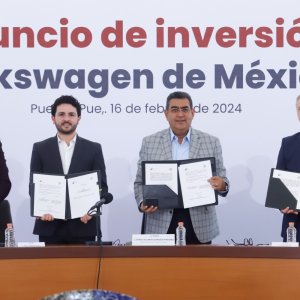Emerging Sectors in North Africa

STORY INLINE POST
In recent years, Middle East countries have launched industrial strategies focused on the development of new non-oil sectors, as in the pharma and medical devices industries in Jordan, the aerospace, automotive and information technology industries in the United Arab Emirates, Saudi Arabia and Bahrain. The trend toward diversification has also spread to North Africa, achieving significant results.
In North Africa, there are seven members of the Arab League, which are Algeria, Egypt, Libya, Mauritania, Morocco, Sudan and Tunisia. In 2019, this group of countries accounted for 29.8 percent of GDP reported by the Arab League countries.
These economies have an advantageous geographical position, enabling them to connect with the markets of sub-Saharan Africa, the Middle East and Europe. In addition, this region has a higher level of agricultural activity, as this sector contributes between 10 and 14 percent of their GDP, giving the countries’ markets greater opportunities for trading intermediate inputs.
In relation to Mexico's trade in goods with Arab countries, these seven countries were the destination of 22 percent of Mexican exports in 2020 and the origin of 42 percent of the imports by our country. It is worth mentioning that some of Mexico's largest trading partners in the region are in North Africa, such as Algeria, Egypt, Morocco and Tunisia.
The markets in these countries demand from Mexico primary products, such as cane sugar, chickpeas and wheat, as well as iron and steel, auto parts, electrical appliances, antibiotics and inputs for the veterinary sector. On the other hand, Mexico's imports from these countries include products mainly from the chemical sector, such as urea and sulfates; from the food sector, such as dates and olive oil; and an important quantity of textiles.
As mentioned previously, North Africa is experiencing swift transformations and significant growth of new industrial sectors at the domestic level. For example, in Algeria, Morocco and Tunisia, the automotive sector is on the rise, while Egypt has seen a notable strengthening in the construction sector. These trends are important to follow because they can enable greater commercial interactions with the Mexican business sector, which has plenty of experience to offer in all of these industries.
New Automotive Business Hubs
In recent years, the North Africa region and, in particular, countries such as Algeria and Morocco, have emerged as new business hubs in the automotive sector.
Algeria has positioned itself as a strong market for the automotive industry, taking multiple steps and strategies to boost manufacturing growth in this sector. As a result, companies such as SEAT and Volkswagen have established factories to produce different models, such as Polo and Skoda Fabia. Nissan is another major automaker with facilities in the country and that is working to develop the local components industry by creating 1,800 jobs. This trend has led the country to focus on importing foreign auto parts.
Industrial acceleration in the region has contributed to the development of the automotive sector in Morocco. This country has attracted new investments in vehicle and auto parts manufacturing and has become one of the leading vehicle producers in the African region, mainly due to the connectivity of the port of Tangier for exports.
Morocco's importance in automotive assembly represents good opportunities for the operations of large automotive companies. To mention one example, the Moroccan market produces 10 percent of the cars sold by Renault worldwide.
As in Algeria, the Moroccan automotive industry is an important source of employment. In the country, the driving force behind the sector has already created 100,000 jobs.
Within the automotive parts segment, it is Tunisia that has been particularly remarkable. Production in the country is increasing by 12 percent year-on- year, with the European Union as its most important buyer. The auto parts manufactured in the country are supplies for manufacturers such as Audi, Peugeot and Volkswagen. Motor equipment, water and gas valves, and electronic and electrical components are the most exported products from Tunisia.
High Emphasis on Infrastructure, Construction
In the last two years, the real estate and construction sectors have been among the fastest-growing sectors in Egypt, making it the benchmark in North Africa. Plans for new cities, urban spaces and residential complexes are drivers of the sector.
The current value of the construction industry in Egypt is US$25 billion and it is expected to grow by 256 percent by 2029, which would enable the Egyptian construction industry to account for 30 percent of the industry in the whole region. Among the most important projects are the Suez Canal economic zone, the new administrative capital, the new city of Al Alamain and the new city of Al Galala.
With these forecasts, it can be seen that the sector will continue to be one of the most dynamic in the Egyptian economy due to its position as a key driver of urban growth and financial stability.
With this regional panorama in mind, there are many opportunities awaiting for Mexico, which has great consolidated industries in both the auto parts and construction industries. These sectors are key to the Mexican economy, the former in 2019 contributed 11 percent to manufacturing GDP in terms of car and truck production, while the manufacturing of auto parts contributed 9 percent. In the case of the construction sector, it contributed 6.5 percent to the national economy the same year. Moreover, the expertise of the Mexican market ranks it among the main export markets for auto parts and construction materials.
These important figures of Mexican industrial outputs lead us to identify a complementarity with the emerging sectors of the North African countries as another opportunity to strengthen relations and trade with this group of countries in the region. Algeria, Egypt, Morocco and Tunisia are currently taking steps to develop those industries but also demanding inputs to achieve it. The experience and international recognition for the quality and production of the Mexican automotive and construction sectors are great opportunities for the businessmen in our country to enter into the market dynamics registered by the region.
















